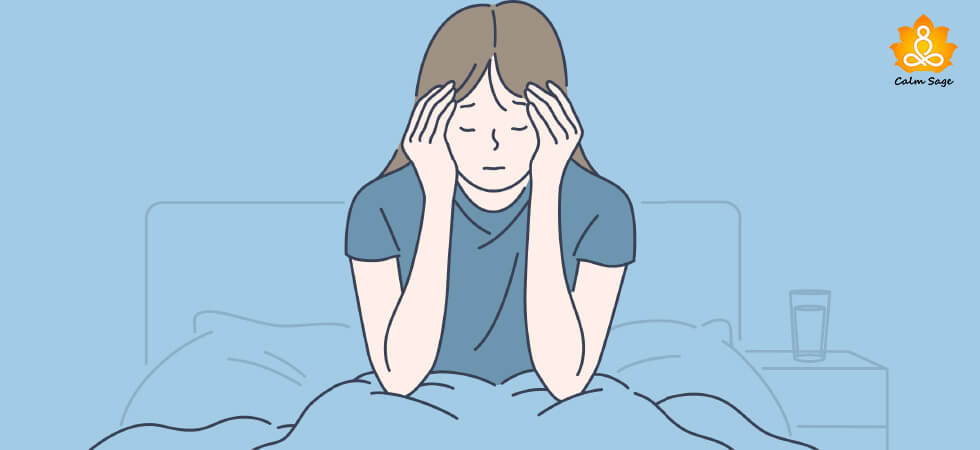Chronic Anxiety: Types, Symptoms, Causes, Treatment, And More

We all feel anxious from time to time. We often get anxious due to workload, school activities, relationships, health, friends, or finances. If someone experiences anxiety occasionally, then it is counted as a normal part but when someone experiences anxiety more frequently, intensely, or extensively, it can be a reason to worry.
Some anxiety disorders involve continuous episodes of anxiety or terror than can reach a peak for example panic attacks. When frequent and intense episodes of anxiety start impacting daily activities, are difficult to control, or can last longer for a long time, it may develop into an anxiety disorder.
What is Chronic Anxiety?
Chronic anxiety is a type of anxiety that means having a long period or phase of an anxiety episode. Chronic anxiety is treatable but it may not go away completely with treatment, it keeps on coming back whenever a person goes through something difficult.
However, with the help of the right approach, we can learn to manage the symptoms and treat chronic anxiety completely. This blog explores the types, symptoms, causes, diagnosis, treatment, and coping strategies of chronic anxiety.
Chronic anxiety is a type of anxiety that persists for a long period. Treatment can help but the symptoms may not vanish properly.
Types of Chronic Anxiety
Below is the list of different types of anxiety disorders that may develop chronic anxiety:
- Generalized Anxiety Disorder (GAD)
- Obsessive-Compulsive Disorder (OCD)
- Panic Disorder
- Post-Traumatic Stress Disorder (PTSD)
- Social Anxiety Disorder (SAD)
In most cases, chronic anxiety is developed or caused due to generalized anxiety disorder but not always. It can also be developed by other anxiety disorders.
Symptoms of Chronic Anxiety
Below are some of the common symptoms of chronic anxiety:
- Anxious thoughts
- Negative thinking pattern
- Excessive or unwanted worry
- Sudden fear or panic attack
- Continuous obsessive thoughts
- Difficulty controlling anxious thoughts or emotions
- Difficulty relaxing and restlessness
- Rapid heartbeat
- Irritability
Some physical symptoms of chronic anxiety are:
- Dry mouth
- Nausea
- Shortness of breath
- Chronic pain or muscle tension
- Stomach pain
- Headache
- Disrupted sleep cycle
- Fatigue or tiredness
Symptoms of chronic anxiety develop eventually and stay for a longer time. Therefore, treating them or managing them is really important before it starts impacting physical health.
Moreover, symptoms of chronic anxiety depend and differ on the basis of the type of anxiety disorder a person might have. For example, if someone has a generalized anxiety disorder, they might start feeling anxious or irritated regularly for not getting things done on time.
Causes of Chronic Anxiety
Chronic anxiety can also take up its roots in childhood as well and it can be caused by a combination of factors like
1. Genetics: Genetics plays a major role in the development of anxiety disorders. A person who has a history or genetics of anxiety is at a high risk of developing such disorders.
2. Environment: Environmental factors like negativity, trauma, or stress can also put someone at risk of developing chronic anxiety. If you or your loved one’s anxiety is driven by trauma, it is really important to tell your therapist about it, so that they can make approach changes accordingly.
3. Social issues: Social issues like winters, climate change, pandemics, or discrimination can worsen anxiety and put someone at risk of chronic anxiety.
4. Personality traits: People who are introverts, nervous, or shy can experience anxiety adapting to new situations and it can develop into chronic anxiety in adulthood.
Diagnosis and Treatment of Chronic Anxiety
If you think you or your loved one might be having chronic anxiety, the first step towards recovery is a proper diagnosis by a certified mental health professional.
The diagnosis process involves:
- Clinical interview
- Questionnaire related to symptoms
- A physical health check-up
The diagnosis process completely depends on the type of symptoms and underlying disorder. After getting a proper diagnosis for chronic anxiety, the second step is to understand the treatment mode chosen by your therapist so that you can also learn to manage your symptoms and put yourself on the track of self-help.
Below listed are the therapy options for overcoming chronic anxiety:
1. Cognitive Behavioral Therapy (CBT): CBT is one of the common approaches used by therapists as it helps in altering negative thoughts by making clients learn positive and healthy thinking patterns.
2. Dialectical Behavioral Therapy (DBT): DBT is a type of talk therapy that helps clients by modifying their existing behavior, regulating their emotions, and strengthening their decision-making skills.
3. Mindfulness-Based Interventions: Mindfulness-based therapy approaches are grounded in mindfulness and help in promoting positivity to improve mental and physical health.
Healthy and Effective Coping Strategies for Chronic Anxiety
Along with treatment, you can try the below-mentioned self-help techniques for managing the symptoms of chronic anxiety:
- Recognize your anxious thinking pattern and try to limit them.
- Try coping strategies like meditation, yoga, or mindfulness-based exercises.
- Work towards more stability and try to avoid the stressors that level up your anxiety
- Try grounding techniques to manage symptoms instantly.
- Try powerful mantras for easing up anxiety.
- Read positive affirmations for anxiety.
I hope this blog helps you understand all you need to know about chronic anxiety. For more such content, connect with us on all social media platforms.
Thanks for reading!




















